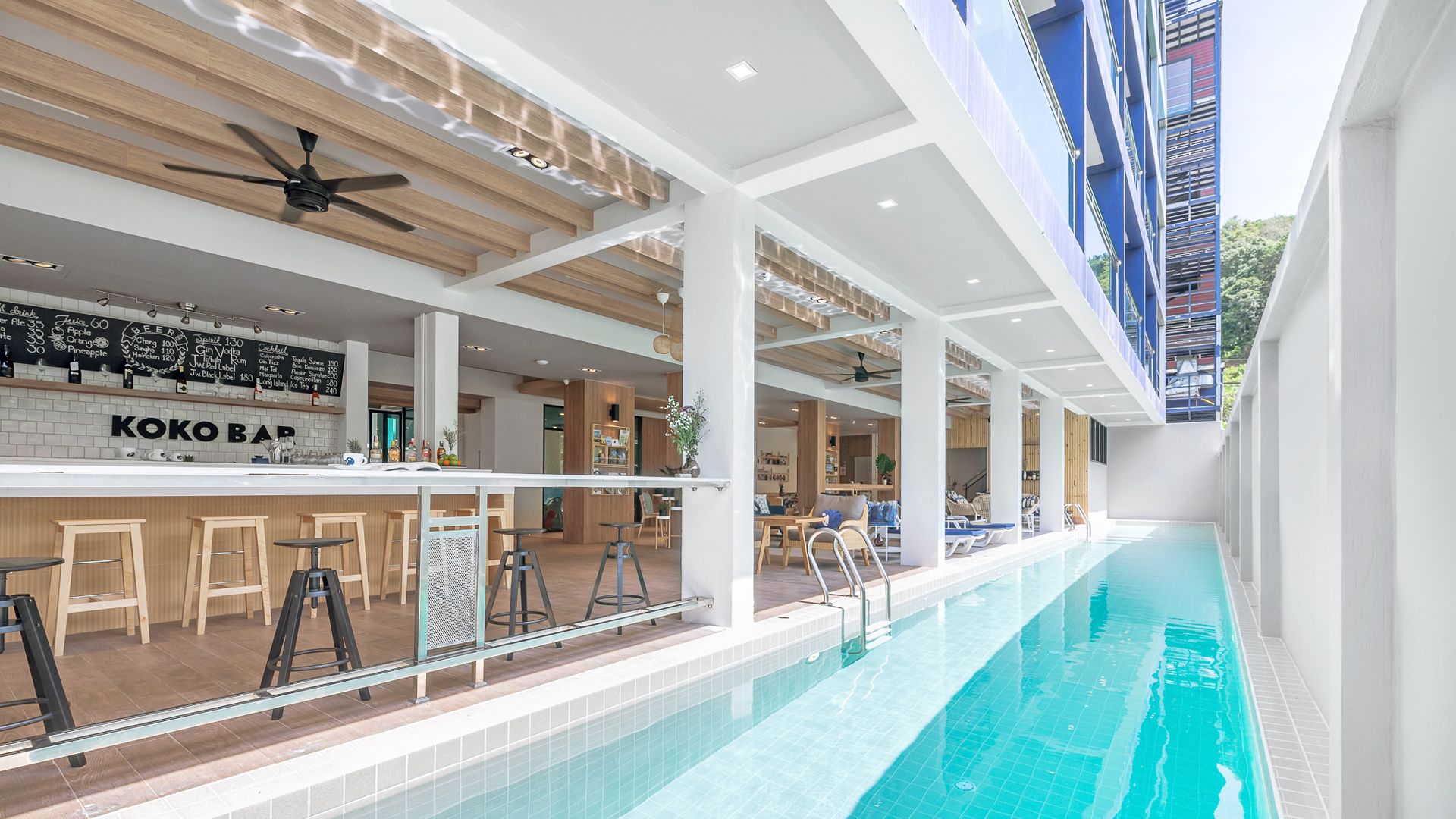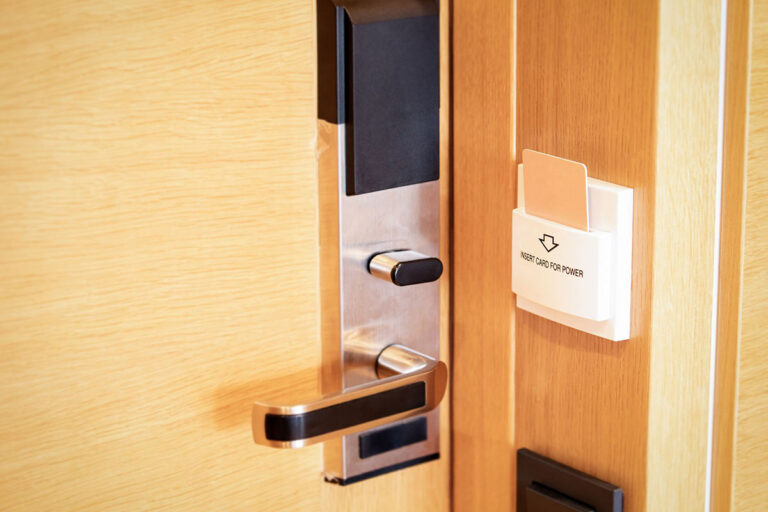How Long Does It Take to Build a Hotel

It typically takes around 18-24 months to build a hotel from inception to completion. Building a hotel involves various stages such as planning, design, permits, construction, and furnishing, which contribute to the overall time frame.
Building a hotel is a complex process that requires careful planning and execution. From the initial concept to the final touches, each phase plays a crucial role in creating a successful hotel project. The timeline for hotel construction varies depending on factors like the size and complexity of the building, location, and availability of resources.
Furthermore, obtaining necessary permits and approvals from local authorities can also impact the overall timeline. We will delve into the various stages involved in hotel construction and explore the factors that affect the duration of the process. So, let’s get started and explore how long it takes to build a hotel.
Navigate Where You Want:
- Factors Affecting The Timeline For Building A Hotel
- Site Selection And Acquisition
- Design And Architectural Planning
- Obtaining Permits And Approvals
- Construction And Building Process
- Small To Mid-Sized Hotel
- Large-Scale Hotel And Resort
- Factors That May Accelerate Or Delay Construction Timelines
- Financial Implications Of Construction Delays
- Competitive Edge And Market Positioning
- Frequently Asked Questions Of How Long Does It Take To Build A Hotel
- How Long Does It Typically Take To Build A Hotel?
- What Factors Can Affect The Construction Time Of A Hotel?
- Are There Any Ways To Speed Up The Hotel Construction Process?
- Can The Location Of The Hotel Impact The Construction Time?
- Conclusion
Factors Affecting The Timeline For Building A Hotel
Factors such as site selection and acquisition, design and architectural planning, obtaining permits and approvals, and the construction and building process all play significant roles in determining the timeline for building a hotel. The process starts with finding the ideal location and negotiating the purchase or lease of the land.
Then, the design and architectural planning phase begins, where detailed blueprints are created and any necessary changes or modifications are made. Obtaining the required permits and approvals from local authorities can be a lengthy process, as it involves meeting specific building codes and regulations.
Finally, the construction and building process begins, which includes tasks such as site preparation, foundation work, framing, and interior finishing. All these factors need to be carefully managed and coordinated to ensure a successful and timely completion of the hotel project.
Site Selection And Acquisition
Site selection and acquisition are crucial steps in the process of building a hotel. Identifying the ideal location involves careful evaluation of potential sites and their suitability. This includes analyzing factors such as accessibility, proximity to attractions, and market demand.
Once suitable locations are identified, negotiations and acquiring the land or property begin. This involves negotiating with landowners or property owners, conducting due diligence, and finalizing the acquisition. These processes can take varying amounts of time, depending on factors such as the size and complexity of the project, market conditions, and regulatory approvals.
It is important to allocate sufficient time for this stage to ensure the success of the hotel project. Making informed decisions during site selection and acquisition will lay the foundation for a successful hotel venture.
Design And Architectural Planning
Design and architectural planning is a crucial process in building a hotel. Engaging an architectural firm is the first step in this endeavor. The firm will help create the hotel concept and theme, considering factors such as location and target audience.
Developing the architectural design and layout follows, ensuring functionality and aesthetic appeal. Every detail, from the room layout to the placement of amenities, is carefully considered. The final step is finalizing the interior design elements, which include selecting color schemes, furnishings, and decorative accents.
This stage adds the finishing touches that enhance the overall guest experience. The time it takes to complete these steps and build a hotel depends on factors such as the size and complexity of the project, as well as any external constraints.
Obtaining Permits And Approvals
Obtaining permits and approvals for a hotel construction project is a crucial step in the process. It involves navigating the complex maze of local government regulations. The first step is acquiring construction permits, which ensure compliance with building codes, zoning regulations, and safety requirements.
This ensures that the hotel project meets health and safety standards, ensuring the well-being of its guests. Additionally, securing environmental clearances is necessary to demonstrate that the project is environmentally friendly and sustainable. Each of these steps takes time and involves thorough documentation and coordination with local government bodies.
Building a hotel requires careful attention to detail and adherence to all necessary permits and approvals before construction can begin.
Construction And Building Process
The construction and building process of a hotel begins with breaking ground and excavation. After that, procurement of construction materials is crucial. Managing construction crews and contractors is necessary to ensure smooth progress. Monitoring construction progress is important to stay on track.
The time it takes to build a hotel varies based on several factors like size, complexity, and location. Generally, a mid-sized hotel can take around 12-24 months to complete. However, it’s important to note that unexpected delays can occur due to various reasons such as weather conditions, permit issues, or changes in design.
Therefore, it’s always recommended to work closely with a professional construction team and have a realistic timeline in mind. By carefully managing each stage of the construction process, hotels can be built efficiently and within the estimated time frame.
Small To Mid-Sized Hotel
Building a small to mid-sized hotel can vary in duration depending on various factors. The timeline typically includes multiple stages such as planning, designing, obtaining permits, construction, and finishing. Each stage requires careful consideration and coordination to ensure smooth progress.
A brief overview of small to mid-sized hotel projects involves understanding the project scope, evaluating the site, conceptualizing the design, and estimating the construction costs. Case studies can provide valuable insights into the process. For example, building a 100-room boutique hotel in a bustling city like Chicago may take around 18 to 24 months from start to finish.
The timeline may vary based on location, size, complexity, and any unforeseen circumstances that may arise during the construction process.
Large-Scale Hotel And Resort
Large-scale hotel and resort projects can take a considerable amount of time to complete. The construction timeline for such projects often depends on various factors like size, location, and design complexity. For instance, a 500-room beachfront resort in Miami might take several years to build.
Each phase of the construction process, including planning, approvals, design, and actual construction, requires careful attention to detail. From acquiring the land to completing the finishing touches, every step demands meticulous planning and execution. The aim is to create a luxurious and comfortable space that caters to the needs of discerning guests.
Therefore, constructing a large-scale hotel and resort is a comprehensive endeavor that involves collaboration between architects, developers, contractors, and other stakeholders. The success of such projects relies on effective project management and adherence to deadlines.
Factors That May Accelerate Or Delay Construction Timelines
Factors like efficient project management and coordination can accelerate construction timelines for building a hotel. Unforeseen delays and issues may also impact the construction process. Moreover, external factors, such as natural disasters or pandemics, can cause further delays. Construction timelines for hotels vary depending on the size and complexity of the project.
Additionally, the availability of labor, materials, and permits can influence the construction duration. Efficient project management and coordination play a vital role in ensuring smooth progress and timely completion. Furthermore, proactive planning and risk management can help mitigate potential delays.
Despite careful planning, unexpected events can still arise, necessitating flexibility and adaptability in construction timelines. Overall, the length of time it takes to build a hotel depends on multiple factors and can range from several months to a few years.
Financial Implications Of Construction Delays
Construction delays can have significant financial implications for hotel projects. Cost overruns and budget constraints are common consequences. These delays can lead to increased expenses, causing the project to exceed its initial budget and potentially strain financial resources. Moreover, construction delays can have a direct impact on revenue generation and profitability.
With each day of delay, the hotel loses out on potential revenue from room bookings, events, and other facilities. This can result in a decline in overall profitability, affecting the return on investment and the financial viability of the project.
Therefore, it is crucial for hotel developers to carefully manage construction timelines to minimize financial risks and ensure that the project is completed within the planned timeframe. By proactively addressing potential delays, developers can safeguard their financial interests and maximize the hotel’s revenue potential.
Competitive Edge And Market Positioning
Building a hotel requires careful planning and execution to ensure a competitive edge in the market. Early entry into the market can provide an advantage in terms of establishing a strong market position. By being one of the first hotels in a particular area, it becomes easier to meet consumer demand and cater to their preferences.
This can be done by conducting thorough market research and understanding the needs of potential customers. Furthermore, optimizing revenue potential is crucial. This can be achieved by offering unique amenities and services that set the hotel apart from competitors. By continuously monitoring market trends and adjusting strategies accordingly, hotels can successfully build their brand and maintain a strong position in the market.
The time it takes to build a hotel varies depending on various factors such as location, size, and complexity of the project.

Credit: www.nbcnews.com
Frequently Asked Questions Of How Long Does It Take To Build A Hotel
How Long Does It Typically Take To Build A Hotel?
It typically takes around 2 to 3 years to build a hotel, depending on the size, location, and complexity of the project. Factors such as zoning requirements, permits, construction delays, and design considerations can also impact the timeline.
What Factors Can Affect The Construction Time Of A Hotel?
Several factors can affect the construction time of a hotel. These include the size and complexity of the project, availability of labor and materials, weather conditions, government regulations, financing, and any unexpected delays or issues that may arise during the construction process.
Are There Any Ways To Speed Up The Hotel Construction Process?
Yes, there are several ways to expedite the hotel construction process. These include pre-fabrication and modular construction methods, fast-tracking certain aspects of the project, utilizing experienced contractors and project managers, and effective project scheduling and coordination to minimize delays.
Can The Location Of The Hotel Impact The Construction Time?
Yes, the location of the hotel can impact the construction time. Factors such as site accessibility, availability of utilities, local building codes and regulations, environmental considerations, and the need for additional infrastructure can all play a role in determining the construction timeline.
Conclusion
The time it takes to build a hotel can vary greatly depending on a multitude of factors. The size and complexity of the project, availability of resources and materials, and adherence to local regulations and permits all play a significant role in determining the timeline.
Additionally, unexpected delays such as adverse weather conditions or unforeseen construction issues can further impact the construction process. However, with proper planning and effective project management, a hotel can typically be built within a timeframe of 12 to 36 months.
It is important for developers and investors to consider the long-term profitability and return on investment when estimating the time it takes to build a hotel. Along with the construction phase, attention must also be given to pre-opening processes such as interior design, furnishing, and marketing.
By taking into account all these factors, developers can ensure a successful hotel build that meets both industry standards and customer expectations.
Related Articles To Read:
- Did Anne Lister Build a Hotel
- Do You Have to Check Out of a Hotel?
- Does Airline Have to Pay for Hotel
- Does Blue Cross Blue Shield Cover Hotel Stays
- Does Instacart Deliver to Hotels?
- Does It Cost Money to Block Hotel Rooms
- How Big Is a Double Bed in a Hotel?
- Are Emotional Support Animals Allowed in Hotels?
- Are Hotel Deposits Refundable?
- Are Hotel Rooms Soundproof?





